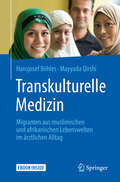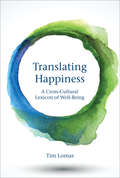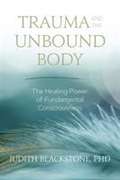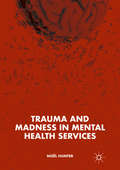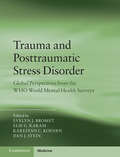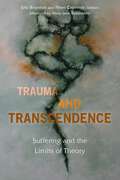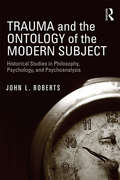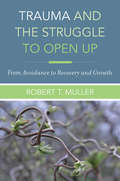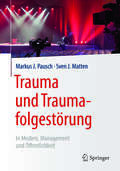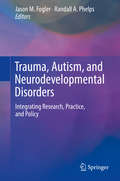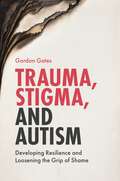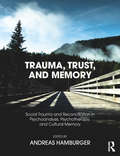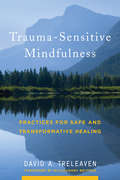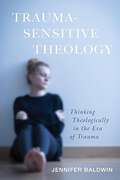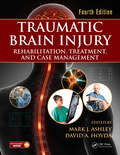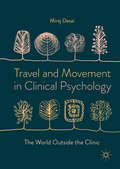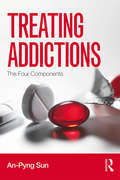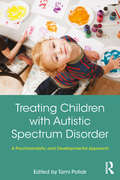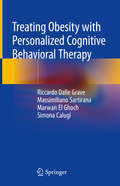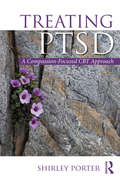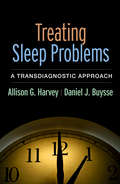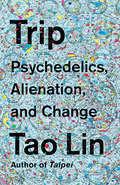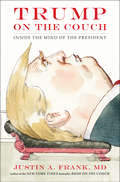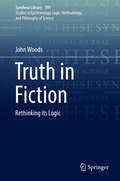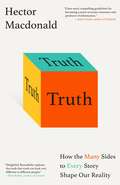- Table View
- List View
Transkulturelle Medizin
by Hansjosef Böhles Mayyada QirshiDas Buch behandelt die wesentlichen kulturellen Eigenheiten von Patienten aus dem arabisch-islamischen und afrikanischen Kulturkreis, Erkrankungen und Einstellungen dazu mit dem Akzent auf Geflüchteten, Asylsuchenden und Migranten, einschließlich Kindern.Die Autoren klären über Missverständnisse auf, beseitigen Unsicherheiten und zeigen die Auswirkungen der kulturellen Diversität auf den Umgang mit Ärzten und Gesundheitsfachberufen im hiesigen Gesundheitssystem. Geprägt von jahrelanger Erfahrung mit Flüchtlingen aus unterschiedlichen Lebenswelten, schärfen die Autoren Ihr Wissen und Bewusstsein für die Kulturunterschiede und bahnen mit hilfreichen Anregungen einen Weg zu einem erfolgreichen, empathischen Arzt-Patientenverhältnis.
Translating Happiness: A Cross-Cultural Lexicon of Well-Being (The\mit Press Ser.)
by Tim LomasHow embracing untranslatable terms for well-being—from the Finnish sisu to the Yiddish mensch—can enrich our emotional understanding and experience.Western psychology is rooted in the philosophies and epistemologies of Western culture. But what of concepts and insights from outside this frame of reference? Certain terms not easily translatable into English—for example, nirvāṇa (from Sanskrit), or agápē (from Classical Greek), or turangawaewae (from Māori)—are rich with meaning but largely unavailable to English-speaking students and seekers of wellbeing. In this book, Tim Lomas argues that engaging with “untranslatable” terms related to well-being can enrich not only our understanding but also our experience. We can use these words, Lomas suggests, to understand and express feelings and experiences that were previously inexpressible.Lomas examines 400 words from 80 languages, arranges them thematically, and develops a theoretical framework that highlights the varied dimensions of well-being and traces the connections between them. He identifies three basic dimensions of well-being—feelings, relationships, and personal development—and then explores each in turn through untranslatable words. Ânanda, for example, usually translated as bliss, can have spiritual associations in Buddhist and Hindu contexts; kefi in Greek expresses an intense emotional state—often made more intense by alcohol. The Japanese concept of koi no yokan means a premonition or presentiment of love, capturing the elusive and vertiginous feeling of being about to fall for someone, imbued with melancholy and uncertainty; the Yiddish term mensch has been borrowed from its Judaic and religious connotations to describe an all-around good human being; and Finnish offers sisu—inner determination in the face of adversity.Expanding the lexicon of well-being in this way showcases the richness of cultural diversity while reminding us powerfully of our common humanity. Lomas's website, www.drtimlomas.com/lexicography, allows interested readers to contribute their own words and interpretations.
Trauma And The Unbound Body: The Healing Power Of Fundamental Consciousness
by Judith Blackstone“Just as an open hand is hidden within a fist, our true nature, with its innate capacities for happiness, love, and wisdom, is hidden within our pain and numbness. Just as we can open a fist to reveal a hand, our unbound, unconstructed being can emerge from our pain and breathe again.” —Dr. Judith Blackstone, Trauma and the Unbound Body Heal trauma. Reclaim your body. Live with wholeness. These are the gifts of utilizing the power of fundamental consciousness—a subtle field of awareness that lies within each of us. In Trauma and the Unbound Body, Dr. Judith Blackstone explores how we can resolve the mental, physical, and emotional struggles of trauma through the power of fundamental consciousness. Dr. Blackstone weaves her 30-plus years of psychotherapy practice to present a simple yet revolutionary approach to healing trauma. She writes, “All of the constrictions in our fascia (the connective tissue surrounding muscles and organs) are moments of our past that we have stopped in their tracks and held in that way, unconsciously. They are frozen moments of our past.” Trauma and the Unbound Body explains how and why the body constricts in response to trauma, causing physical and emotional pain. Dr. Blackstone guides us through step-by-step processes to unwind those constrictions by attuning to fundamental consciousness, setting the body free of trauma once and for all by uncovering an unbreakable, unified ground of being. In Trauma and the Unbound Body, Dr. Blackstone discusses: ? The five main purposes for bodily constriction—and how to release them to return to wholeness ? How to inhabit the body as fundamental consciousness to liberate trauma-based constrictions ? The Realization Process—a meditative practice for embodied spiritual awakening ? Discovering the unified ground of being within the body that enables lasting change
Trauma and Madness in Mental Health Services
by Noël HunterHow do survivors of child abuse, bullying, chronic oppression and discrimination, and other developmental traumas adapt to such unimaginable situations? It is taken for granted that experiences such as hearing voices, altered states of consciousness, dissociative states, lack of trust, and intense emotions are inherently problematic. But what does the evidence actually show? And how much do we still need to learn?
Trauma and Posttraumatic Stress Disorder: Global Perspectives from the WHO World Mental Health Surveys
by Dan Stein Evelyn Bromet Elie Karam Karestan KoenenPosttraumatic Stress Disorder (PTSD) is a chronic, under-detected and under-treated psychiatric consequence of trauma that is often linked to new-onset medical and psychological conditions, impaired quality of life and long-term disability across the globe. This book is the first systematic analysis of the rates, risk factors, consequences and global burden of trauma and PTSD across a variety of wealthy and underdeveloped settings. An analysis of a global survey conducted by the World Health Organization and featuring findings from over 70,000 participants around the world, this text demonstrates a unique perspective on the prevalence of exposure to trauma and PTSD and the impact it has on population health. The findings inside this text underscore the urgent need for policymakers and healthcare providers to prioritize interventions aimed at reducing the burden of trauma, PTSD and its consequences.
Trauma and Transcendence: Suffering and the Limits of Theory
by Eric Boynton and Peter CaprettoTrauma theory has become a burgeoning site of research in recent decades, often demanding interdisciplinary reflections on trauma as a phenomenon that defies disciplinary ownership. While this research has always been challenged by the temporal, affective, and corporeal dimensions of trauma itself, trauma theory now faces theoretical and methodological obstacles given its growing interdisciplinarity. Trauma and Transcendence gathers scholars in philosophy, theology, psychoanalysis, and social theory to engage the limits and prospects of trauma’s transcendence. This volume draws attention to the increasing challenge of deciding whether trauma’s unassimilable quality can be wielded as a defense of traumatic experience against reductionism, or whether it succumbs to a form of obscurantism.Contributors: Eric Boynton, Peter Capretto, Tina Chanter, Vincenzo Di Nicola, Ronald Eyerman, Donna Orange, Shelly Rambo, Mary-Jane Rubenstein, Hilary Jerome Scarsella, Eric Severson, Marcia Mount Shoop, Robert D. Stolorow, George Yancy.
Trauma and the Ontology of the Modern Subject: Historical Studies in Philosophy, Psychology, and Psychoanalysis
by John L. RobertsRecent scholarship has inquired into the socio-historical, discursive genesis of trauma. Trauma and the Ontology of the Modern Subject, however, seeks what has not been actualized in trauma studies – that is, how the necessity and unassailable intensity of trauma is fastened to its historical emergence. We must ask not only what trauma means for the individual person’s biography, but also what it means to be the historical subject of trauma. In other words, how does being human in this current period of history implicate one’s lived possibilities that are threatened, and perhaps framed, through trauma? Foucauldian sensibilities inform a critical and structural analysis that is hermeneutically grounded. Drawing on the history of ideas and on Lacan’s work in particular, John L. Roberts argues that what we mean by trauma has developed over time, and that it is intimately tied with an ontology of the subject; that is to say, what it is to be, and means to be human. He argues that modern subjectivity – as articulated by Heidegger, Levinas, and Lacan – is structurally traumatic, founded in its finitude as self-withdrawal in time, its temporal self-absence becoming the very conditions for agency, truth and knowledge. The book also argues that this fractured temporal horizon – as an effect of an interrupting Otherness or alterity – is obscured through the discourses and technologies of the psy-disciplines (psychiatry, psychology, and psychotherapy). Consideration is given to social, political, and economic consequences of this concealment. Trauma and the Ontology of the Modern Subject will be of enduring interest to psychoanalysts and psychotherapists as well as scholars of philosophy and cultural studies.
Trauma and the Struggle to Open Up: From Avoidance To Recovery And Growth
by Robert T. MullerHow to navigate the therapeutic relationship with trauma survivors, to help bring recovery and growth. In therapy, we see how relationships are central to many traumatic experiences, but relationships are also critical to trauma recovery. Grounded firmly in attachment and trauma theory, this book shows how to use the psychotherapy relationship, to help clients find self-understanding and healing from trauma. Offering candid, personal guidance, using rich case examples, Dr. Robert T. Muller provides the steps needed to build and maintain a strong therapist-client relationship –one that helps bring recovery and growth. With a host of practical tips and protocols, this book gives therapists a roadmap to effective trauma treatment.
Trauma und Traumafolgestörung
by Markus J. Pausch Sven J. MattenDieses Buch bietet Lösungsansätze zur Angstbewältigung sowie bezüglich psychologischer Traumata und posttraumatischer Belastungsstörung mit besonderem Fokus auf die Zielgruppe exponierter Personen, die in Management, Medien oder allgemein in der Öffentlichkeit tätig sind und dadurch einer besonders starken Beobachtung und Bewertung durch ihr Umfeld ausgesetzt sind. Wie damit konstruktiv umgegangen werden kann und dies vielleicht sogar als Wettbewerbsvorteil genutzt sowie überwunden und persönliches Glück wiedererlangt werden kann, erläutert und unterstützt das vorliegende Werk.
Trauma, Autism, and Neurodevelopmental Disorders: Integrating Research, Practice, and Policy
by Jason M. Fogler Randall A. PhelpsThis book examines the diagnostic overlap and frequent confusion between the newly named DSM-5 diagnostic categories of neurodevelopmental disorders (NDDs), which include autism spectrum disorder (ASD), and trauma and stressor related disorders (TSRDs). These conditions are similar in that a) children with developmental disorders are particularly vulnerable to traumatic events and b) all have pervasive effects on the brain and development. Chapters provide a wealth of effective clinical, family, and school-based interventions, developed from established studies and important new findings. In addition, chapters use illustrative case studies to survey assessment challenges in today’s healthcare climate and consider alternative routes for improving correct diagnoses, identifying appropriate interventions, and referring proper targeted, evidence-based treatment and services. The book concludes with the editors’ recommendations for needs-based service access, including a more widespread use and acceptance of the Research Domain Criteria (RDoC) and the International Classification of Functioning, Disability, and Health (ICF) framework.Topics featured in this book include:The neurobiological contributors to posttraumatic stress disorder (PTSD).Fetal alcohol spectrum disorders (FASDs) and its diagnosis in children with a history of trauma.Interventions for trauma and stressor-related disorders in preschool-aged children.Reactive attachment disorder (RAD) and autism spectrum disorder (ASD) diagnosis and care in a cultural context.Special population consideration in ASD identification and treatment.Challenges associated with the transition to adulthood. Trauma and neurodevelopmental disorders from a public health perspective. Trauma, Autism, and Neurodevelopmental Disorders is a must-have resource for researchers, clinicians and related professionals, and graduate students in developmental psychology, child and adolescent psychiatry, public health, social work, pediatrics, and special education.
Trauma, Stigma, and Autism: Developing Resilience and Loosening the Grip of Shame
by Gordon GatesThis book presents ground-breaking ideas based on current research on how stigma can cause bodily felt trauma in stigmatised or marginalised people, particularly those on the autism spectrum. Gordon Gates draws on his academic research, professional knowledge as a counsellor, and lived experience with Asperger's syndrome to provide a unique framework for combating the psychological and emotional impact of stigma.Explaining how to develop resilience and essential coping mechanisms to manage distress and improve mental health, this book casts new light on the significance of stigma in mental health, and marks a new way forward for anyone who has been made to feel like an "outsider".
Trauma, Trust, and Memory: Social Trauma and Reconciliation in Psychoanalysis, Psychotherapy, and Cultural Memory
by Andreas HamburgerTrauma is one of the most important topics discussed throughout the clinical, social and cultural field. Social traumatization, as we meet it in the aftermath of genocide, war and persecution, is targeted at whole groups and thus affects the individual's immediate holding environment, cutting it off from an important resilience factor; further on, social trauma is implemented in a societal context, thus involving the surrounding society in the traumatic process. Both conditions entail major consequences for the impact and prognosis of the resulting individual posttraumatic disorders as well as for the social and cultural consequences. The volume connects clinical and epidemiological studies on the sequelae of social trauma to reflections from social psychology and the humanities. Post-war and post-dictatorial societies are in particular marked by the effects of massive, large group traumatization, and if these are not acknowledged, explored, and mourned, the unprocessed cumulative trauma that has become deeply embedded in the collective memory leads to periodical reactivations. To address social trauma, an interdisciplinary approach is required.
Trauma-Sensitive Mindfulness: Practices For Safe And Transformative Healing
by David A. Treleaven Willoughby Britton"[A] rare combination of solid scholarship, clinically useful methods, and passionate advocacy for those who have suffered trauma." —Rick Hanson, PhD, author of Buddha's Brain: The Practical Neuroscience of Happiness, Love, and Wisdom From elementary schools to psychotherapy offices, mindfulness meditation is an increasingly mainstream practice. At the same time, trauma remains a fact of life: the majority of us will experience a traumatic event in our lifetime, and up to 20% of us will develop posttraumatic stress. This means that anywhere mindfulness is being practiced, someone in the room is likely to be struggling with trauma. At first glance, this appears to be a good thing: trauma creates stress, and mindfulness is a proven tool for reducing it. But the reality is not so simple. Drawing on a decade of research and clinical experience, psychotherapist and educator David Treleaven shows that mindfulness meditation—practiced without an awareness of trauma—can exacerbate symptoms of traumatic stress. Instructed to pay close, sustained attention to their inner world, survivors can experience flashbacks, dissociation, and even retraumatization. This raises a crucial question for mindfulness teachers, trauma professionals, and survivors everywhere: How can we minimize the potential dangers of mindfulness for survivors while leveraging its powerful benefits? Trauma-Sensitive Mindfulness offers answers to this question. Part I provides an insightful and concise review of the histories of mindfulness and trauma, including the way modern neuroscience is shaping our understanding of both. Through grounded scholarship and wide-ranging case examples, Treleaven illustrates the ways mindfulness can help—or hinder—trauma recovery. Part II distills these insights into five key principles for trauma-sensitive mindfulness. Covering the role of attention, arousal, relationship, dissociation, and social context within trauma-informed practice, Treleaven offers 36 specific modifications designed to support survivors’ safety and stability. The result is a groundbreaking and practical approach that empowers those looking to practice mindfulness in a safe, transformative way.
Trauma-Sensitive Theology: Thinking Theologically in the Era of Trauma
by Jennifer BaldwinThe intention of Trauma-Sensitive Theology is to help theologians, professors, clergy, spiritual care givers, and therapists speak well of God and faith without further wounding survivors of trauma. It explores the nature of traumatic exposure, response, processing, and recovery and its impact on constructive theology and pastoral leadership and care. Through the lenses of contemporary traumatology, somatics, and the Internal Family Systems model of psychotherapy, the text offers a framework for seeing trauma and its impact in the lives of individuals, communities, society, and within our own sacred texts. It argues that care of traumatic wounding must include all dimensions of the human person, including our spiritual practices, religious rituals and community participation, and theological thinking. As such, clergy and spiritual care professionals have an important role to play in the recovery of traumatic wounding and fostering of resiliency. This book explores how trauma-informed congregational leaders can facilitate resiliency and offers one way of thinking theologically in response to traumatizing abuses of relational power and our resources for restoration.
Traumatic Brain Injury: Rehabilitation, Treatment, and Case Management, Fourth Edition
by Mark J. Ashley David A. HovdaIn the last decade neuroscience has matured at a remarkable pace, shedding a far more exacting light on mechanisms of neurophysiology, pathophysiology of injury, neuroendocrinology, neuro-immunology, neuroplasticity, neuropharmacology and neurodegenerative processes. Individuals with acquired brain injury are treated earlier and now achieve far better recovery than in the past. The fourth edition of this text constitutes a continuation of 20 years of coverage of traumatic brain injury, and broadens the discussion of acquired brain injury. Within TBI, the paradigm shift from an injury occurring at a point in time to a disease entity of a chronic nature is changing the discussion of diagnosis, management, treatment and outcome assessment. Disease specification that differentiates TBIs by the mechanism of injury, the exact nature of the injury, the extent of injury, presence of co-morbidities and their exact nature, gender, age, race, and genome are emerging as crucial. There was a time when cancer was an undifferentiated disease. Disease differentiation has consequently impacted diagnosis, treatment and outcome. This text is intended to serve as a ready reference tool, contributing to the professional growth of each reader, and stimulating innovation and research. It also promotes the continued refinement in the management of diseases of acquired brain injury.
Travel and Movement in Clinical Psychology: The World Outside The Clinic
by Miraj DesaiThis book concerns clinical psychology, but it is most concerned with the world outside the clinic. That world—where culture, history, and economy are found—radically impacts the public’s mental health. However these worldly considerations often do not feature centrally in the science and practice of clinical psychology, a subfield of psychology seemingly dedicated to mental health. Desai offers a corrective by travelling out of the clinic and into the world, exploring ideas, movements, and thinkers that help broaden our approach to well-being, by situating it within its cultural, historical, and sociopolitical contexts. The book aims to be an intercultural journey itself—encountering Buddhism, phenomenology, Edmund Husserl, Mahatma Gandhi, and Rev. Dr. Martin Luther King, Jr. along the way. Featuring a Foreword by Jeffrey Sachs, the book positions pressing matters such as social justice, racial justice, and environmental justice as integral components of good mental health work. The book will be of interest to readers interested in cultural and community approaches to psychological science and practice.
Treating Addictions: The Four Components
by An-Pyng Sun<i>Treating Addictions: The Four Components</i> offers a unique and coherent understanding of addiction. The book begins with a chapter discussing the framework of addiction and the four essential components of treatments—the fundamentals of addiction, co-occurring disorders, quality of life, and macro factors—and subsequent chapters elaborate on each component. Most currently available addiction treatment books present knowledge and skills in separate chapters and fail to integrate all chapters within a single framework that can weave all concepts into a meaningful tapestry. Using a unified framework, this book offers students a comprehensive skill set for treating addictions.
Treating Children with Autistic Spectrum Disorder: A psychoanalytic and developmental approach
by Tami PollakTreating Children with Autistic Spectrum Disorder: A Psychoanalytic and Developmental Approach outlines a unique model, the product of over twenty years of experience in working with children with this diagnosis within "Shaked" - a multi-professional educational-therapeutic day-car unit in Israel. This book provides a comprehensive overview of this model and the psychoanalytic-developmental perspective underpinning it, which weaves together the various professional views into a single fabric integrating a therapeutic network which encompasses each and every aspect of the child's development. Drawing on psychoanalytic and developmental psychology, each chapters is devoted to the daily problems that arise when working with ASD children, such as weaning and toilet training, as well as the effects of ASD on wider family functioning, all in the context of administering treatment to young children in day-care and other non-residential settings. Treating Children with Autistic Spectrum Disorder offers an essential, practical guide which will be an asset to any clinician working with young children on the autistic spectrum, as well as the parents and siblings of these children.
Treating Obesity with Personalized Cognitive Behavioral Therapy
by Riccardo Dalle Grave Massimiliano Sartirana Marwan El Ghoch Simona CalugiThis book describes a novel therapy for obesity that associates the traditional procedures of weight-loss lifestyle modification with specific, individualized cognitive behavioral procedures to address some obstacles that have been indicated by recent research to influence weight loss and maintenance. The Cognitive Behavioral Therapy for Obesity (CBT-OB) can be used to treat all classes of obesity, including patients with severe comorbidities and disability associated with obesity, who are not usually included in traditional weight-loss lifestyle modification treatments. The book describes the treatment program in detail, and with numerous clinical vignettes. It also discusses involving significant others in the change process and adapting the CBT-OB for patients with severe obesity, binge-eating disorder, medical and psychiatric comorbidity, and treated with weight-loss drugs or bariatric surgery. Lastly, a chapter is dedicated to the use of digital technology with CBT-OB in order to help patients monitor their food intake and physical activity and to addressing obstacles in real time. Thanks to the description of how to apply the latest, evidence-based CBT-OB to real world settings, this volume is a valuable useful tool for all specialists - endocrinologists, nutritionists, dietitians, psychologists, psychiatrists - who deal with obesity and eating disorders.
Treating PTSD: A Compassion-Focused CBT Approach
by Shirley PorterTreating PTSD presents a comprehensive, compassion-focused cognitive behavioral therapy (CBT) approach that provides therapists with the evidence-based information they need to understand trauma’s effects on the mind and body as well as the phases of healing. Chapters offer discussion, practical tools, and interventions that therapists can use with clients suffering from post-traumatic stress disorder (PTSD) to reduce feelings of distress and increase their sense of safety. Readers are introduced to the metaphor of "the valley of the shadow of death" to explain the experience of PTSD; they’re also shown how to identify the work they’ll need to do as therapists to accompany clients on their healing journey. Two new compassion-focused CBT interventions for trauma processing are also introduced.
Treating Sleep Problems: A Transdiagnostic Approach
by Allison G. Harvey Daniel J. BuysseThis practical manual presents an innovative modular treatment for adults and adolescents with a wide range of sleep and circadian rhythm problems, such as insomnia, daytime sleepiness, poor sleep quality, and irregular sleep-wake schedules. The treatment applies broadly to all individuals with sleep problems, including those with psychiatric disorders. It is grounded in a cutting-edge understanding of sleep health and integrates elements of cognitive-behavioral therapy for insomnia (CBT-I), interpersonal and social rhythm therapy (IPSRT), and other evidence-based therapies. Each module is described in detail, including specific practitioner guidance, sample scripts, developmental adaptations, and tips for enhancing motivation. Purchasers get access to a Web page where they can download and print the book's 17 reproducible client handouts in a convenient 8 1/2" x 11" size.
Trip: Psychedelics, Alienation, and Change
by Tao LinPart memoir, part history, part journalistic exposé, Trip is a look at psychedelic drugs, literature, and alienation from one of the twenty-first century's most innovative novelists--The Electric Kool-Aid Acid Test for a new generation. A Vintage Original.While reeling from one of the most creative--but at times self-destructive--outpourings of his life, Tao Lin discovered the strange and exciting work of Terence McKenna. McKenna, the leading advocate of psychedelic drugs since Timothy Leary, became for Lin both an obsession and a revitalizing force. In Trip, Lin's first book-length work of nonfiction, he charts his recovery from pharmaceutical drugs, his surprising and positive change in worldview, and his four-year engagement with some of the hardest questions: Why do we make art? Is the world made of language? What happens when we die? And is the imagination more real than the universe?In exploring these ideas and detailing his experiences with psilocybin, DMT, salvia, and cannabis, Lin takes readers on a trip through nature, his own past, psychedelic culture, and the unknown.
Trump on the Couch: Inside the Mind of the President
by Justin A. Frank"A great public service--critical for our time."--Bandy X. Lee, M.D., M.Div., Yale psychiatrist, expert on violence, and editor of The Dangerous Case of Donald TrumpThe New York Times-bestselling author of Bush on the Couch shows that Donald Trump is mentally and emotionally unfit to execute the duties of President.No president in the history of the United States has inspired more alarm and confusion than Donald Trump. As questions and concerns about his decisions, behavior, and qualifications for office have multiplied, they point to one primary question: Does he pose a genuine threat to our country? The American Psychiatric Association's Goldwater Rule constrains psychiatrists from offering diagnoses on public figures who are not patients and who have not endorsed such statements. But in Trump on the Couch Clinical Professor of Psychiatry Justin A Frank invokes the moral responsibility that compels him to speak out and present a full portrait of a man who presents us with a clear and present danger.Using observations gained from a close study of Trump's patterns of thought, action, and communication, Dr. Frank uncovers a personality riddled with mental health issues. His analysis is filled with important revelations about our nation's leader, including disturbing insights into his childhood, his family, his business dealings, and his unusual relationship with alternative facts, including how * The absence of a strong maternal force during childhood has led to Trump's remarkable lack of empathy and disregard for women's boundaries; * His compulsion to polarize America has grown out of the way he perceives the world as full of deceitful and destructive persecutors; * His inability to tolerate the pain of frustration has triggered his belief that omnipotence will finally remove it; * His idiosyncratic use of language points to larger issues than even his tweets might suggest.With our country itself at stake, Dr. Frank calls attention to the underlying narcissism, misogyny, deception, and racism that drive the President who endangers it. A penetrating examination of how we as a nation got here and, more important, where we are going, Trump on the Couch sounds a call to action that we cannot ignore.
Truth in Fiction: Rethinking Its Logic (Synthese Library #391)
by John WoodsThis monograph examines truth in fiction by applying the techniques of a naturalized logic of human cognitive practices. The author structures his project around two focal questions. What would it take to write a book about truth in literary discourse with reasonable promise of getting it right? What would it take to write a book about truth in fiction as true to the facts of lived literary experience as objectivity allows?It is argued that the most semantically distinctive feature of the sentences of fiction is that they areunambiguously true and false together. It is true that Sherlock Holmes lived at 221B Baker Street and also concurrently false that he did. A second distinctive feature of fiction is that the reader at large knows of this inconsistency and isn’t in the least cognitively molested by it. Why, it is asked, would this be so? What would explain it?Two answers are developed. According to the no-contradiction thesis, the semantically tangled sentences of fiction are indeed logically inconsistent but not logically contradictory. According to the no-bother thesis, if the inconsistencies of fiction were contradictory, a properly contrived logic for the rational management of inconsistency would explain why readers at large are not thrown off cognitive stride by their embrace of those contradictions. As developed here, the account of fiction suggests the presence of an underlying three - or four-valued dialethic logic. The author shows this to be a mistaken impression. There are only two truth-values in his logic of fiction.The naturalized logic of Truth in Fiction jettisons some of the standard assumptions and analytical tools of contemporary philosophy, chiefly because the neurotypical linguistic and cognitive behaviour of humanity at large is at variance with them. Using the resources of a causal response epistemology in tandem with the naturalized logic, the theory produced here is data-driven, empirically sensitive, and open to a circumspect collaboration with the empirical sciences of language and cognition.
Truth: A User's Guide
by Hector Macdonald"In a time when truth is under assault, Hector Macdonald is here to defend it. He offers clear-eyed, compelling guidelines for becoming a more accurate consumer and producer of information."--Adam Grant, author of Give and Take, Originals, and Option B with Sheryl SandbergFor fans of Nudge, Sway, and The Art of Thinking Clearly, a fascinating dive into the many ways in which "competing truths" shape our opinions, behaviors, and beliefs.True or false? It's rarely that simple.There is more than one truth about most things. The Internet disseminates knowledge but it also spreads hatred. Eating meat is nutritious but it's also damaging to the environment. When we communicate we naturally select the truths that are most helpful to our agenda.We can select truths constructively to inspire organizations, encourage children, and drive progressive change. Or we can select truths that give a false impression of reality, misleading people without actually lying. Others can do the same, motivating or deceiving us with the truth. Truths are neutral but highly versatile tools that we can use for good or ill.In Truth: How the Many Sides to Every Story Shape Our Reality, Hector Macdonald explores how truth is used and abused in politics, business, the media and everyday life. He shows how a clearer understanding of truth's many faces renders us better able to navigate our world and more influential within it. Combining great storytelling with practical takeaways and a litany of fascinating, funny, and insightful case studies, Truth is a sobering and engaging read about how profoundly our mindsets and actions are influenced by the truths that those around us choose to tell.
